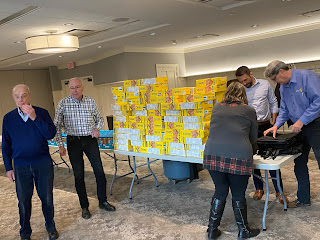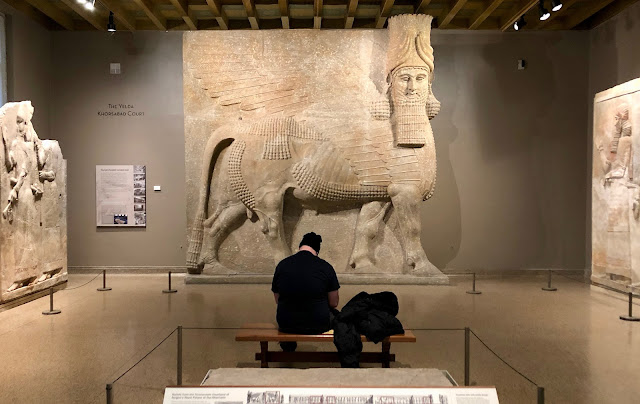 |
| Generated by Dall-E. |
Sigh.
OK.
If I must.
The current tizzy over this kid, Nick Fuentes, a vile antisemite — is there any other kind? — dining with two other vile antisemites, Kanye West and Donald Trump, is ...
What? Oh. Don’t slide into the ditch on me here regarding that last one. Doesn’t matter that his son-in-law is Jewish. Trump could be a Jew himself and that wouldn’t change anything. Stephen Miller is Jewish, in theory. Moving on ...
... having dinner with two other big-mouth bigots, Kanye West and Donald Trump ...
Better? I aim to please. Though after 40 years in this business, I’m convinced that the object of bigotry hardly matters. Haters are cowards — they’re searching for anyone safe to attack and thereby feel ... I don’t know, powerful and manly, I suppose. Their victims are fungible; anyone will do, provided they are vulnerable enough. Trans kids, Muslims, Blacks, Jews, what’s the difference? Remember Trump’s escalator descent at Trump Tower, deus ex machina, to announce his candidacy? All that poison about Mexico sending us drug dealers and rapists? You elected him president anyway. To make a fuss now, over this, is just daft. Rolling around in bigotry like a dog in ordure doesn’t hurt Trump; it’s what made him. Half of America loves this.
Which brings us back to Fuentes and the secret. Have you asked yourself how, at 24, in a media landscape that is a 24/7 howling hurricane, a billion voices screaming at once, does this knucklehead get to be a national figure in the first place? What’s his secret sauce?
Right. Hate sells. Vile sells. Antisemitism sells. It cuts through the clutter. People who have nothing else to say say that, and everybody perks right up.
Look at our own homegrown hater, the Right Honorable Louis Farrakhan. Smart. Ambitious. With valid points: self-reliance; avoid drugs and alcohol; respect women; shop in the community.
But he can give a two-hour Founders Day speech and what gets reported? The three minutes he fulminates against the Jews. Which isn’t wrong. You can’t expect the papers to focus instead on his bean cake project. Farrakhan learned the lesson and the vicious circle turned for years: He condemns the Jews for plotting against him. Jewish groups issue their pro forma complaints. Which Farrakhan points to as proof of animosity against him. He just couldn’t stop.


































